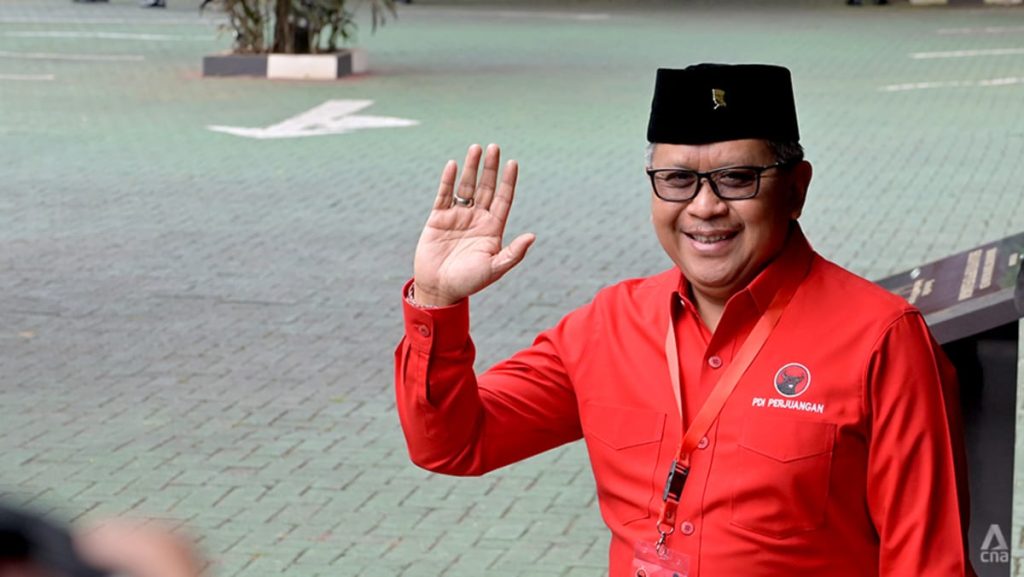The Indonesian Corruption Eradication Commission (KPK) has imposed a six-month travel ban on two prominent members of the Indonesian Democratic Party of Struggle (PDI-P), Hasto Kristiyanto and Yasonna Laoly, amidst an ongoing investigation into bribery allegations related to a House of Representatives seat. This action signifies a significant development in a case that has been unfolding since 2019, involving accusations of illicit payments to secure a parliamentary position. The KPK’s move to restrict the movement of these high-ranking party officials underscores the seriousness of the allegations and the agency’s commitment to pursuing the investigation thoroughly.
Hasto Kristiyanto, the PDI-P secretary-general, has been named a suspect in the bribery case involving former General Elections Commission commissioner Wahyu Setiawan. The alleged bribery scheme, spanning from 2017 to 2022, involved payments made to secure a House seat for former PDI-P member Harun Masiku. Masiku’s opportunity arose following the death of a lawmaker-elect in March 2019. The KPK alleges that Hasto played a key role in facilitating the bribery transactions, contributing a significant portion of the illicit funds. These funds, totaling S$19,000 and US$38,350, were allegedly paid to Wahyu and a former official of the General Election Supervisory Agency (Bawaslu) between December 16 and 23, 2019.
Harun Masiku, implicated as the recipient of the secured parliamentary seat, has been a fugitive since January 2020, evading law enforcement authorities. The KPK alleges that Hasto instructed Masiku to dispose of his phone and flee following the initiation of the investigation. This alleged obstruction of justice further complicates the case and adds another layer to the accusations against Hasto. The KPK’s efforts to locate and apprehend Masiku remain ongoing, highlighting the challenges in pursuing individuals who evade legal proceedings.
Yasonna Laoly, the country’s Law and Human Rights Minister from 2019 to August 2024, has also been entangled in the investigation. While not named a suspect, Yasonna has been questioned as a witness regarding Masiku’s movements and potential knowledge of his whereabouts. His position as the head of the ministry overseeing the immigration office, which holds records of Masiku’s travel history, makes his testimony crucial to the investigation. The KPK’s interest in Yasonna’s involvement underscores the agency’s pursuit of all potential leads and witnesses in the case.
The PDI-P, Indonesia’s largest political party and a key player in the country’s political landscape, has vehemently denied the allegations against its members. The party has characterized the timing of the probe as politically motivated, suggesting it is a form of “political terror” targeting Hasto, a known critic of former President Joko Widodo. Hasto’s criticism of a Constitutional Court ruling that allowed Widodo’s son to run for vice-president has fueled speculation about the political undertones of the investigation. This adds a layer of political intrigue to the already complex corruption case.
The travel ban imposed on Hasto and the questioning of Yasonna mark a significant escalation in the KPK’s investigation. The agency’s determination to pursue these high-profile figures demonstrates its commitment to tackling corruption within Indonesia’s political system. The outcome of this investigation holds significant implications for the PDI-P and the broader political landscape, potentially impacting public trust and influencing future political alliances. The case also highlights the ongoing challenges in combating corruption, particularly when it involves influential political figures and intricate networks of power. The KPK’s efforts will be closely watched as the investigation unfolds, with the potential to reshape the political dynamics within Indonesia.

